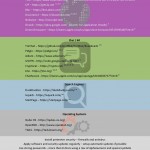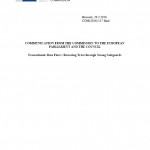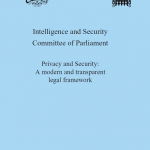
The disclosure of controversial mass surveillance programmes by intelligence and national security agencies has evoked an international debate on the right of citizens to be protected from illegitimate or warrantless collection and analysis of their data and meta-data. This report aims at identifying what are the risks of data breaches for users of publicly available Internet services such as web browsing, email, social networks, cloud computing, or voice communications, via personal computers or mobile devices, and what are the possible impacts for the citizens and the European Information Society. In this context a clear distinction has to be made between data and meta-data. Also it must be differentiated between mass unwarranted and indiscriminate interception, and targeted lawful interception of Internet and telephony data for the purpose of law enforcement and crime investigation. While targeted lawful interception constitutes a necessary and legitimate instrument of intelligence and law enforcement agencies, mass surveillance is considered a threat to civil liberties such as the right to freedom of opinion and expression. These civil liberties are essential human rights in democratic societies and of particular importance for safeguarding independent journalism and political opposition.
Read more →



